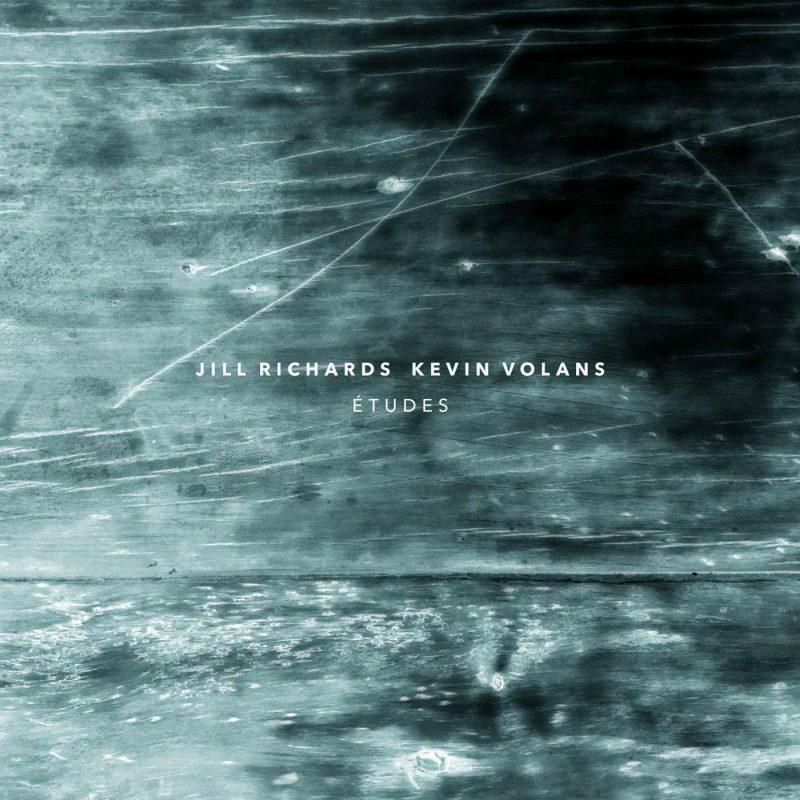VOLANS; LISZT Études
View record and artist detailsRecord and Artist Details
Genre:
Instrumental
Label: Diatribe
Magazine Review Date: 10/2022
Media Format: CD or Download
Media Runtime: 71
Mastering:
DDD
Catalogue Number: DIACD036

Tracks:
| Composition | Artist Credit |
|---|---|
| Années de pèlerinage année 3, Movement: Aux cyprès de la Villa d'Este (3-4) |
Franz Liszt, Composer
Kevin Volans, Piano |
| (12) Etudes d'exécution transcendante, Movement: No. 11, Harmonies du soir |
Franz Liszt, Composer
Kevin Volans, Piano |
| Tristan und Isolde (Wagner)–Liebestod |
Franz Liszt, Composer
Kevin Volans, Piano |
| Années de pèlerinage année 3, Movement: Aux cyprès de la Villa d'Este (4-4) |
Franz Liszt, Composer
Kevin Volans, Piano |
| 6 Études |
Kevin Volans, Composer
Jill Richards, Piano Kevin Volans, Piano |
Author: Jed Distler
Composers who write piano études usually aim for bravura and surface flash. Not so Kevin Volans. Although his études certainly present technical difficulties and textural challenges, they are about musical ideas first and foremost. Indeed, their lack of artifice and expressive directness allows Volans’s creative voice to emerge in bold, primary colours, like a contemporary counterpart to Mussorgsky or Janáček.
Jill Richards presents six of Volans’s 13 études in stark, powerful and dynamically contrasted readings that make me curious to hear her play the remaining seven. Volans describes the Second Étude as ‘large blocks of static resonance’, yet the sparse and full-bodied chords generate a subtle narrative flow. If anything, the nine-minute-plus Sixth Étude fully embodies that static and resonant state of mind. The Third Étude features brief repeated phrases that are sliced and diced up and down the keyboard’s registers. Some of the polyrhythmic counterpoint suggests Conlon Nancarrow’s elaborate schemes, although sequences of repeated broken chords represent quasi-minimalist points of respite. The Seventh Étude is slow and static in the Morton Feldman sense, while the Fourth Étude pits barely audible sustained single notes against loud stabbing chords.
The album’s second half features semi-archival recordings from 2001 of Volans himself playing works of Liszt. He begins with a spacious rendition of the Wagner/Liszt Liebestod where fascinating inner voices and nuanced dynamics compensate for sagging melodic continuity. Similarly, ‘Harmonies du soir’ and ‘Aux cyprès de la Villa d’Este’ sound more ‘composerly’ than ‘pianistic’ in regard to Volans’s attention to bass lines and his ear for harmonic tension. In this context I anticipated an intimately scaled, low-voltage ‘Les jeux d’eau à la Villa d’Este’, rather than the fleet, headlong and impressively scintillating interpretation preserved here. Volans’s annotations match the cogency and forthrightness of his music-making. An unusual and fascinating release, for sure.
Discover the world's largest classical music catalogue with Presto Music.

Gramophone Digital Club
- Digital Edition
- Digital Archive
- Reviews Database
- Full website access
From £8.75 / month
Subscribe
Gramophone Full Club
- Print Edition
- Digital Edition
- Digital Archive
- Reviews Database
- Full website access
From £11.00 / month
Subscribe
If you are a library, university or other organisation that would be interested in an institutional subscription to Gramophone please click here for further information.




